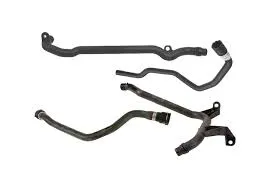bendable fuel line
ຕ.ລ. . 06, 2024 18:00 Back to list
bendable fuel line
The Advantages of Bendable Fuel Lines in Modern Vehicles
In the ever-evolving world of automotive engineering, the quest for efficiency and innovation continues to drive the development of new technologies. One such advancement is the introduction of bendable fuel lines, which are rapidly gaining popularity in modern vehicles. These flexible conduits provide a multitude of benefits over traditional rigid fuel lines, improving both functionality and overall vehicle performance.
Firstly, bendable fuel lines offer enhanced versatility during installation. Traditional fuel lines are typically made of rigid materials that can be challenging to maneuver within the often-tightly packed engine bays of contemporary cars. This rigidity can lead to complications during manufacturing and repair processes. In contrast, bendable fuel lines can be easily shaped to fit various layouts, allowing for quicker installations and reductions in labor costs. This flexibility is particularly beneficial for manufacturers aiming to streamline production while maintaining safety and durability.
In addition to ease of installation, bendable fuel lines contribute to improved fuel efficiency. Traditional rigid lines can cause fuel flow restrictions due to their fixed positions and angles, which can lead to pressure drops and inefficiencies in fuel delivery. Bendable fuel lines, on the other hand, can be optimized for smoother flow paths, minimizing turbulence and ensuring a more consistent fuel supply to the engine. This enhancement can lead to better engine performance and fuel economy, which are critical factors for consumers and manufacturers alike.
bendable fuel line

Another notable advantage of bendable fuel lines is their ability to absorb vibrations and impacts. Cars are subject to a variety of dynamic forces while in motion, and rigid fuel lines may crack or fracture under stress. Bendable lines, often made from advanced synthetic materials, can better withstand these conditions, thus increasing their longevity and reliability. This resilience helps to enhance the overall safety of vehicles by reducing the risk of fuel leaks—a concern that can lead to hazardous situations.
Moreover, bendable fuel lines are easier to maintain and replace. In the event of damage or wear, rather than replacing an entire section of rigid lines, mechanics can simply replace or repair the affected section of a bendable line. This not only saves time but also minimizes waste and lowers repair costs for vehicle owners.
In conclusion, the adoption of bendable fuel lines represents a significant leap forward in automotive technology. Their versatility, efficiency, capacity to absorb vibrations, and ease of maintenance make them a compelling choice for both manufacturers and consumers. As the automotive industry continues to innovate, bendable fuel lines are poised to play a crucial role in enhancing vehicle performance, safety, and sustainability.
